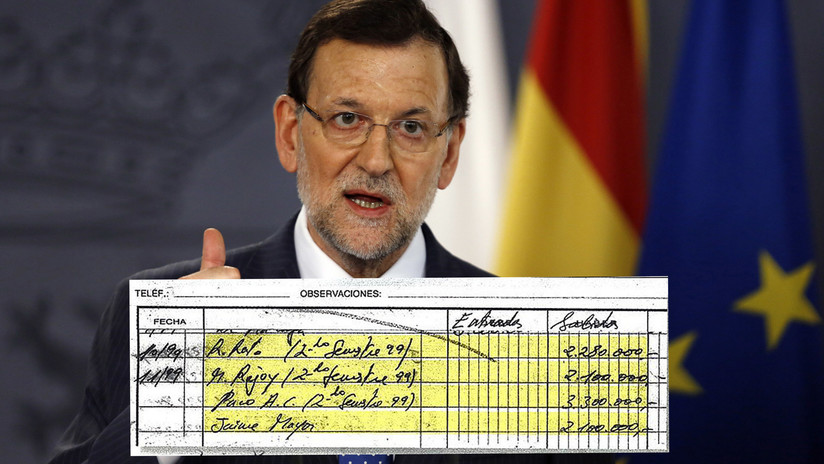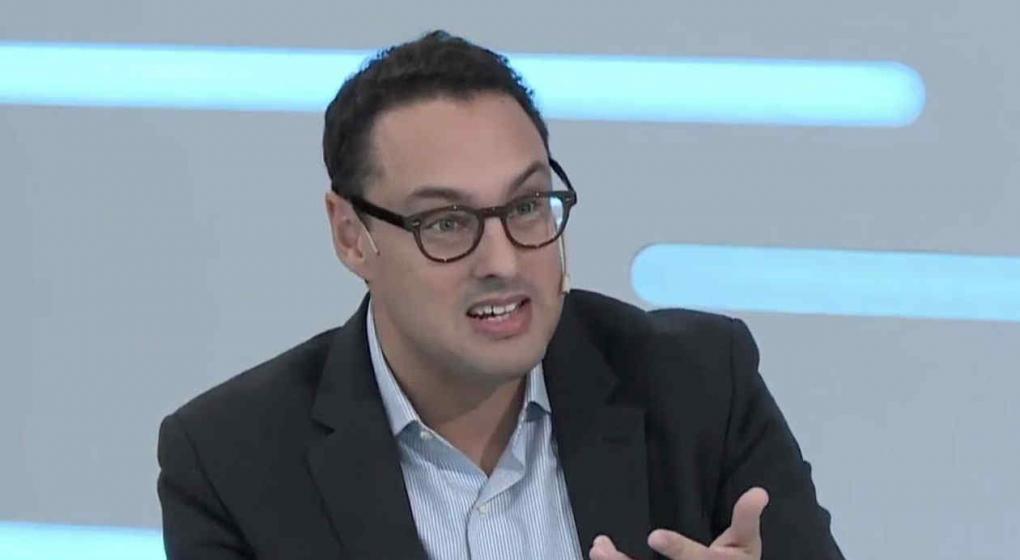peppertree
peppertree's JournalReynaldo Bignone, the last Argentine dictator, dead at 90
Reynaldo Bignone, the last military dictator of Argentina, has died at Buenos Aires' Central Military Hospital. He was 90.
Bignone, who had been serving a life sentence for his role in the 1970s Dirty War, led Argentina for 18 months between July 1982 and December 10, 1983, when he turned over the presidency to a democratically-elected civilian, Raúl Alfonsín.
An Army General and former head of the National Military College, Bignone was appointed to succeed Gen. Leopoldo Galtieri after the latter's defeat in the Falklands War.
He was credited for partially restoring labor union rights and the freedom of assembly - and for ultimately yielding to popular calls for free elections, which were held for the first time in a decade in October 1983.
While Bignone's domestic team oversaw a recovery in real wages, his tenure was also marked by a Central Bank bailout of some $15 billion in private foreign debt - including some $124 million owed by Franco Macri, the father of current President Mauricio Macri.
Bignone's "self-amnesty" decree, moreover, granted a blanket pardon to all involved in human rights abuses during the Dirty War, when up to 30,000 dissidents, most of them known to be non-violent, were murdered.
The self-amnesty was overturned by Congress just days after President Alfonsín took office; but Bignone's order for the systematic destruction of evidence made prosecuting the those implicated - as well as determining the true scope of the atrocities - a challenging task that is still ongoing.
Imprisoned in 1984, Bignone, like many dictatorship officials, was given amnesty - first by the 1987 Law of Due Obedience, which Alfonsín signed due to military pressure, and later by a blanket pardon issued by President Carlos Menem in 1990.
He was arrested in 2007 for his role in the kidnapping of 40 people at the Alejandro Posadas Hospital, west of Buenos Aires, and the trafficking of infants born to and abducted from the roughly 500 pregnant women who were among the disappeared.
Bignone was sentenced to 25 years in prison in 2010 for his involvement in the torture and murder of 56 people at the Campo de Mayo Army Base, which he headed. He was sentenced on April 14, 2011, to life in prison for crimes against humanity.
His detention was part of President Néstor Kirchner's renewed drive to investigate past human rights abuses, and since then neary 3,000 others have been prosecuted, with over 1,000 convictions.
At: https://translate.google.com/translate?hl=en&sl=es&tl=en&u=https%3A%2F%2Fwww.infobae.com%2Fpolitica%2F2018%2F03%2F07%2Fmurio-el-dictador-reynaldo-bignone-el-ultimo-presidente-de-la-dictadura%2F
Reynaldo Bignone (1928-2018).
Rajoy's Spain: Country of thieves wrestles with corruption
The stench of corruption clings to Spanish politics — and especially to the ruling Popular Party (PP) of Mariano Rajoy.
Between July 2015 and September 2016, 1,378 officials or politicians from across the spectrum faced trial on corruption charges, according to the General Council for the Judiciary.
The right-wing PP is desperately trying to keep its litany of scandals off the political agenda. But, with the liberal Ciudadanos party breathing down its neck in polls and high-profile cases rarely out of the headlines, the party has been forced to shift its position:
Where it previously insisted allegations were either unfounded or politically motivated, Rajoy’s PP now acknowledges there has been a problem.
Yet in a country frequently wracked by scandal, one particular case promised to shed new light on the shady wheelings and dealings of the ruling party.
Ricardo Costa, former secretary general of the PP in Valencia, appeared before the Spanish High Court in January. He was accused of having helped run a massive network of bribes-for-contracts in the region during the decade-long economic boom.
“It’s true that the PP financed its 2007 election campaign with dirty money,” he said at one point. “I didn’t denounce that and I am willing to assume responsibility for it. I acknowledge the accusations and I apologize.”
Costa, who could face up to eight years in prison if found guilty, went on to incriminate his former boss, Francisco Camps — who resigned in 2011 amid similar allegations despite being absolved by the courts — for overseeing the kickbacks scheme.
“The winter of 2018 is turning out to be a particularly cold one for the PP in the courts,” wrote El País newspaper, which said that Rajoy’s party is currently facing over 50 investigations for allegedly corrupt practices.
At: https://www.politico.eu/article/spain-corruption-country-of-thieves-high-court-trial/
Spanish Prime Minister Mariano Rajoy and proof of kickbacks in his name. Former hardline IMF head Rodrigo Rato, currently in prison, is also listed.
New Argentine revenue head found to keep nearly all assets overseas
The newly-appointed director of Argentina's Federal Public Revenue Agency (AFIP), Leandro Cuccioli, was revealed to have at least 94% of his personal wealth overseas, according to public documents.
Financial disclosures filed while working under President Mauricio Macri's chief of staff show that Cuccioli's assets include real estate in London and Uruguay, U.S. mutual fund and savings accounts, as well as shares in two Cayman Islands investment funds and a Bermuda-domiciled firm.
Out of a total of $320,000 in declared net assets as of the end of last year, all but $25,000 were overseas - an unprecedented situation for an Argentine revenue head since financial disclosure statements became mandatory for all Argentine public officials in 1999.
Critics note Cuccioli may have dramatically understated some assets as well: An 170 m² (1830 ft²) apartment in London, of which Cuccioli stated having 50% ownership, was listed as being worth around $320,000 - an unlikely figure in a city where median home prices currently exceed $600 per square foot.
Cuccioli, 40, replaced Alberto Abad, who was reportedly forced out after firing the brother-in-law of a top Macri associate, Boca Juniors football club head Daniel Angelici.
Abad had been under pressure to resign since an AFIP leak last August revealed that relatives and close associates of Macri's used a 2016 tax amnesty program to "whitewash" a total of at least $132 million in undeclared offshore funds.
Argentine law forbids the use of tax amnesty benefits by family or close associates of sitting federal officials.
Numerous officials in the right-wing Macri administration - including the president - have been listed in the Panama and Paradise Papers offshoring scandals.
At: https://translate.google.com/translate?hl=en&sl=es&tl=en&u=http%3A%2F%2Fwww.politicargentina.com%2Fnotas%2F201803%2F24836-en-linea-con-el-gabinete-de-macri-el-nuevo-titular-de-la-afip-tiene-todo-su-patrimonio-fuera-del-pais.html
Argentina's new revenue head Leandro Cuccioli.
Polish group sues Argentine paper under new Holocaust law
A Polish campaign group is suing an Argentine newspaper it says breached a new law that makes it a criminal offence to suggest Poland was complicit in the Holocaust.
In what appeared to be the first legal action under the so-called Holocaust law, just hours after it took effect, the Polish League Against Defamation said it filed a complaint against Argentina's leading progressive daily, Página/12.
The dispute refers to a December 18, 2017, article by Federico Pavlovsky on the Jedwabne pogrom, ‘Familiar Faces’.
The 1941 incident, in which Polish locals colluded with Nazi occupiers, resulted in the massacre of at least 340 Jews.
A minister from Poland’s conservative government applauded the move to invoke the law which Warsaw says will protect it from slander - but which the United States and Israel said would suppress authentic historic research and free speech.
The League, a non-governmental group that campaigns to protect Poland’s historical reputation abroad, said that Página/12 used a photograph of Polish ‘doomed soldiers’ who fought against communists after the war to illustrate an article on the Jedwabne pogrom.
The ruling Law and Justice party has praised the ‘doomed soldiers’. While many are seen as national heroes in the struggle against Soviet domination, some led killings of Jews, Belarusians and other minorities.
Página/12 noted Saturday evening that “this newspaper did not receive any legal communication and only learned of the information through international news agency reports.”
“If successful, this attempt at international censorship could threaten freedom of expression worldwide,” the article read.
At: https://www.reuters.com/article/us-israel-poland/polish-group-sues-argentine-paper-under-new-holocaust-law-idUSKCN1GF0RF
Link to Pavlovsky's article (in English): https://www.pagina12.com.ar/99401-familiar-faces
Profile Information
Member since: Thu May 18, 2017, 12:36 PMNumber of posts: 21,615


